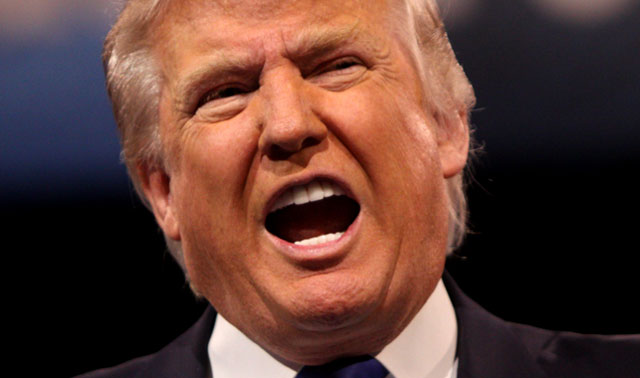
Few tech workers come from the seven countries affected by US President Donald Trump’s entry ban. But the 97 US companies, most of them from the tech sector, that lent their support to the State of Washington’s lawsuit aiming to block Trump’s executive order, have good reasons to fight it every step of the way.
Iran, Iraq, Libya, Somalia, Sudan, Syria and Yemen aren’t huge sources of tech talent, at least according to the imperfect gauge provided by the H1B visa statistics. This visa type is often used by tech companies to hire engineers. In 2015, only 254 people from the seven countries received such visas, and that number doesn’t include a single Somali or Yemeni citizen. Poland alone provided 252 H1B workers that year, while India, the undisputed champion, sent almost 120 000 such workers to the US.
Whatever problems Trump’s executive order created weren’t insurmountable for the likes of Apple, Google, Facebook, Netflix or PayPal, all signatories to the amicus brief in support of the Washington lawsuit. They could make arrangements for these workers and their families, applying for exceptions or relocating them to overseas subsidiaries.
The companies, however, chose to fight the ban anyway, risking blowback from a mercurial president. The obvious reason is laid out in the brief: the executive order came with no warning and created much confusion, so recruits everywhere — not just in those seven countries — would be justified in having misgivings about the US now.
Business and employees have little incentive to go through the laborious process of sponsoring or obtaining a visa, and relocating to the US, if an employee may be unexpectedly halted at the border.
According to the US Census Bureau, 24% of science, technology, engineering and mathematics workforce in computer-related occupations is foreign-born, compared to 16,7% of the general US workforce. That’s only possible because the US is so strong in the international competition for tech talent.
Last year, Mikkel Barslund and Mathias Busse of the Centre for European Policy Studies published a report on European IT professionals’ mobility, based on data from LinkedIn. They found that in 2014, 70 000 such workers left the European Union, and 31 000 of them went to the US — the biggest magnet for European IT talent. That same year, 19 000 US-based developers moved to the EU.
In part, the outflow is explained by the high salaries good engineers command in the US. The median earnings of a foreign-born worker in science, technology, engineering and mathematics, at US$88 496, are significantly higher than a native-born American colleague, who makes $77 368 a year.
But it wouldn’t take much to reverse the flow. Europe needs the talent badly.
The European Commission estimates that the continent will have 750 000 unfilled IT jobs by 2020. European nations have already relaxed visa requirements for tech professionals. If the US moves in the opposite direction — and there are indications that Trump’s next move will make it more difficult to get H1B visas — European companies and global employers with operations in the EU won’t even have to compete on pay. That’s one reason it makes sense for the tech companies to draw red lines early on, before the worst happens and they start losing in the competition for talent.
There is, however, a less obvious reason why the most innovative industry in the US must fight any entry bans, regardless of whether the countries on the ban list supply thousands of engineers or just a few.
In their brief, the tech companies quoted Woodrow Wilson, who, in 1901, complained about what he considered the wrong kind of immigration: “Multitudes of men of the the lowest class from the south of Italy and men of the meanest sort out of Hungary and Poland, men out of the ranks, where there was neither skill nor energy nor any initiative of quick intelligence.” Immigrant-haters say the same today about newcomers from Muslim countries. And yet the positive effect of last century’s wave of arrivals did not show up for years.
Ufuk Akcigit of the University of Chicago and two collaborators have just published a paper showing that in fields where foreign-born inventors were prevalent between 1880 and 1940, the number of US patents increased compared to others in 1940-2000.
In 1880-1940, about 20% of inventors in the US were immigrants — some of them likely “out of the ranks”; today, their share is about 30%. That makes it likely that the fields in which they work will experience a disproportional innovation boom decades from now. Immigrant creativity is not just a resource for today; it’s what has created America’s innovation edge, and what will maintain it in the future. And one never knows where the people who lay the foundation of that future edge will come from. Keeping out one Iranian immigrant might cost the US eventual leadership in an entire field.
Of course, the US has established immigration curbs in the past, too. But doing it now, when there’s plenty of eager competition for innovators and even for workers who are merely technically competent, is more harmful than in Wilson’s day. — (c) 2017 Bloomberg LP

